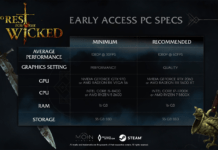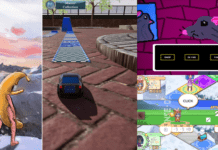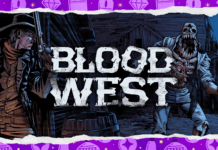How good can you get at playing video games? Playing for hours on hours may help one stay competitive, but the best players in the esports arena are looking for even more gains from their training regime. If one leading team is to be believed, the answer may be brain training.
At the Team Liquid training center in the Dutch city of Utrecht, coach David Tillberg-Persson, alias «Fuzzface,» frowns and scratches his beard, focused, eyes glued to a screen.
Using the keyboard, the 28-year-old former Swedish player must recognize shapes and «catch» red dots, anticipating, identifying and reacting with increasing speed.
Tillberg-Persson is testing a new training program before it is made available to the Team Liquid players themselves.
Team Liquid is one of the biggest in the professional esports leagues and they are keen to keep their edge, with the focus on brain training adding to the use of coaches.
The image of the overweight teenager locked in his room is a distant memory in a sector that has rapidly professionalized, with prize money worth millions of dollars and players leading disciplined lifestyles.
With new generations of gamers adding to the pool of talent, competition is fierce and teams are now seeking to optimize the cognitive aspect, which is crucial in a field where every millisecond counts.
Described as «revolutionary» by Team Liquid, the new training program, dubbed The Pro Lab, has also been implemented in California where the team is based.
«We believe The Pro Lab will make waves in the eSports industry and beyond,» Dutchman Victor Goossens, founder and co-CEO of Team Liquid, said in a statement.
«The Pro Lab is a first-of-its-kind training space backed by eSports science, fundamentally changing not only the way these athletes train but how they grow and evolve along with the industry,» said Team Liquid.
The Team Liquid players, young people living all over the world, will be subjected to cognitive tests involving relatively simple games, the results of which will then be analyzed to target both shortcomings and qualities.
There are four main types: attention, memory, control and anticipation.
«We are trying to use technology and data to make our practice more efficient and more focused than what we are used to, sitting behind a PC for eight hours,» explains Brittany Lattanzio, senior athletics manager at Team Liquid.
«At the very, very top level it's a game of inches. The smallest detail can make your team perform so much better than other teams,» the 32-year-old Canadian tells Agence France-Presse (AFP).
The goal is to determine training activities for each player to improve concentration, reaction speed or memory.
«All Team Liquid athletes are going to play the games and based on that, we're going to get a lot of data from which we create profiles,» says Rafick de Mol, 28, an analyst at BrainsFirst, the Dutch company responsible for the development of Pro Lab.
«It's a fairly recent development – and we're at the forefront of that – that can add so much value because it provides information that other tests or conversations don't provide,» observes De Mol.
«It's part of the future of esports,» he said.
«Fuzzface,» the coach of a team that plays PlayerUnknown's Battlegrounds (PUBG), a multiplayer combat and survival video game, is eagerly awaiting the first results.
«Historically, training has been very focused on just game performance» but the new tests will give them much more data to work with, says the coach, who is already a veteran in a «very young» industry.
Lattanzio said it made sense to use technology in such a tech-based field.
«There are so many more tools that you can use on a computer than you can with like running around on a football field,» she said.











